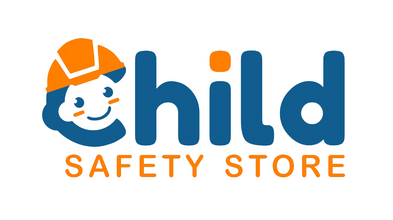
Tips for Visiting a Newborn During COVID-19
New parents usually can’t wait to share their new bundle of joy with their loved ones. But what about during a pandemic? Today, let’s explore some basic tips for visiting a newborn during COVID-19.
Tougher Than Usual
According to a report from the Brookings Institution, the U.S. is expected to see as many as 500,000 fewer births in 2021, a 13% drop from the 3.8 million babies born in 2019. Still, between now and then, that’s still a lot of babies!
Raising a child can be tough. It’s even trickier during a massive pandemic. But what should parents of newborns do during this harrowing time?
Depending on where you live and your personal comfort levels, scheduling visits can be tougher than usual. With mandated limits of visitors, and social distancing guidelines, it can be hard to nail down real answers about what is safe and appropriate. This can lead to many new parents feeling isolated and confused.
Safety First: Visiting a Newborn During COVID-19
Let’s be realistic, the family is going to be very excited to see your little one. In the end, that’s okay. It’s just important for every family to set proper boundaries. This isn’t a simple playdate, after all. According to the CDC:
The number and rate of cases in children in the United States have been steadily increasing from March to July 2020. The true incidence of SARS-CoV-2 infection in children is not known due to lack of widespread testing and the prioritization of testing for adults and those with severe illness. Hospitalization rates in children are significantly lower than hospitalization rates in adults with COVID-19, suggesting that children may have less severe illness from COVID-19 compared to adults.
As you can see, the rate of positive cases may appear to be getting worse, but it also seems that children are potentially in less danger than adults. Either way, the safety of the entire family should not be taken lightly. After all, older family members or those with pre-existing conditions might fall into higher-risk categories. A bit of extra care may save the lives of you and your loved ones.
Why and How to Visit a Newborn during COVID-19
Before visiting a newborn during COVID-19, it is important to keep the purpose of the visit top of mind. First things first, consider the reason for the visit. After all, not all visits are equal.
For example, a relative dropping off food or gifts at the front door requires far less interaction than a lengthy in-house visit. Before anyone comes over, be sure to discuss your mutual comfort levels.
Can I Hold the Baby?
Now we’ve gotten to the real question: is it wise for people to hold the newborn other than the parents? Well, unfortunately, not really. On the whole, it’s often recommended that new parents don’t pass a baby around for everyone to hold. During a pandemic, this is even more important. Holding and cradling a baby results in direct and close-contact face-to-face interactions. This can be dangerous for everyone involved.
Respecting Wishes
If you are the person visiting a newborn during COVID-19, then it’s important to listen to the baby’s parents. For instance, if they ask you to wait before coming over, it’s important to respect their wishes. After all, the parents are probably exhausted and can use a break, so refusing help or company may have been quite difficult for them.
During these trying times, everyone has different levels of comfort. It is important for all of us to respect the wishes of each other.
Keep Social Distance
If you’re having guests, it’s best to keep the visits both outdoors and socially distanced. This means people should sit 6-10 feet apart from each other. All the adults should wear masks. Above all, if anyone is sick, they should stay home.
As of this writing, we are still learning more about the virus every day. It is contagious for up to 48 hours before anyone develops symptoms. Certain activities that are common during this time of year, like talking, singing, and sharing food, can dramatically increase the transmission rate of the virus.
If you are unsure of how to properly and safely visit, ask a medical professional. For new parents especially, this can be an extra stressful time, so a helping hand can really put everyone’s mind at ease.
